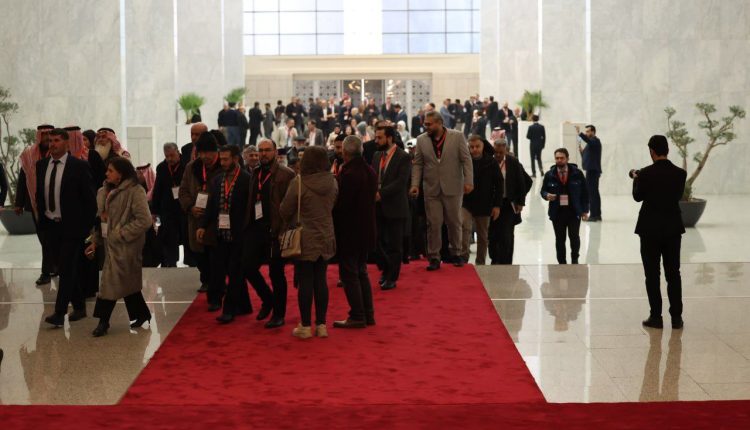Syrian National Dialogue Conference starts amid criticism over representation
DAMASCUS, Syria (North Press) – The Syrian National Dialogue Conference commenced on Monday at the People’s Palace in Damascus amid criticism over representation.
Ahmad al-Sharaa, Syria’s transitional president, opened the session with a speech emphasizing that the ongoing events mark the beginning of a new historical phase for the country.
He acknowledged the significant challenges Syria faces, calling for resilience and adherence to the rule of law.
According to Syrian media reports, around 550 participants are attending the conference. However, several political parties, movements, and civil society groups have criticized the conference, citing rushed preparations, underrepresentation of minorities, and concerns over its ultimate impact.
“Syria is experiencing systematic destruction of its economy, services, and key development factors,” al-Sharaa stated. “We must rebuild our state based on the rule of law, ensuring that those who create laws also abide by them.”
He further announced the formation of a transitional justice commission to oversee national reconciliation and legal reforms, outlining a three-phase plan: immediate relief, mid-term reconstruction, and a long-term strategic framework for Syria’s recovery.
Meanwhile, Foreign Minister Asaad al-Shaibani addressed Syria’s foreign policy during the conference’s opening session, reaffirming the country’s commitment to sovereignty and independence.
“We will not accept any infringement on our sovereignty or independence and will operate free from external pressures,” al-Shaibani declared. “We have taken several steps to restore Syria’s influential role both regionally and internationally, pursuing a balanced and open foreign policy.”
He emphasized Syria’s efforts to enhance regional and global cooperation, arguing that Syria’s stability is crucial for broader regional and international security.
Al-Shaibani also highlighted ongoing efforts to establish partnerships with nations interested in supporting Syria’s reconstruction.

